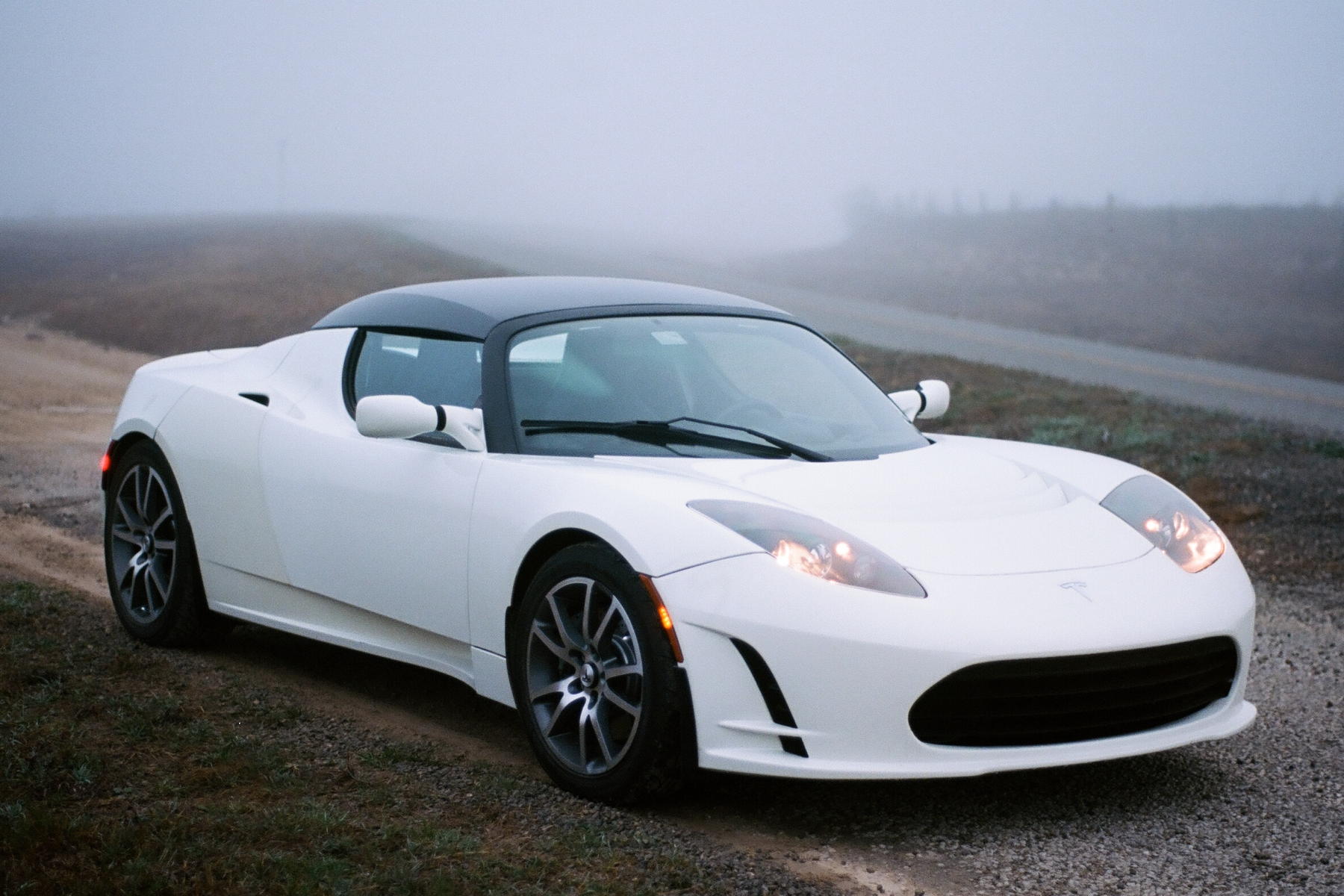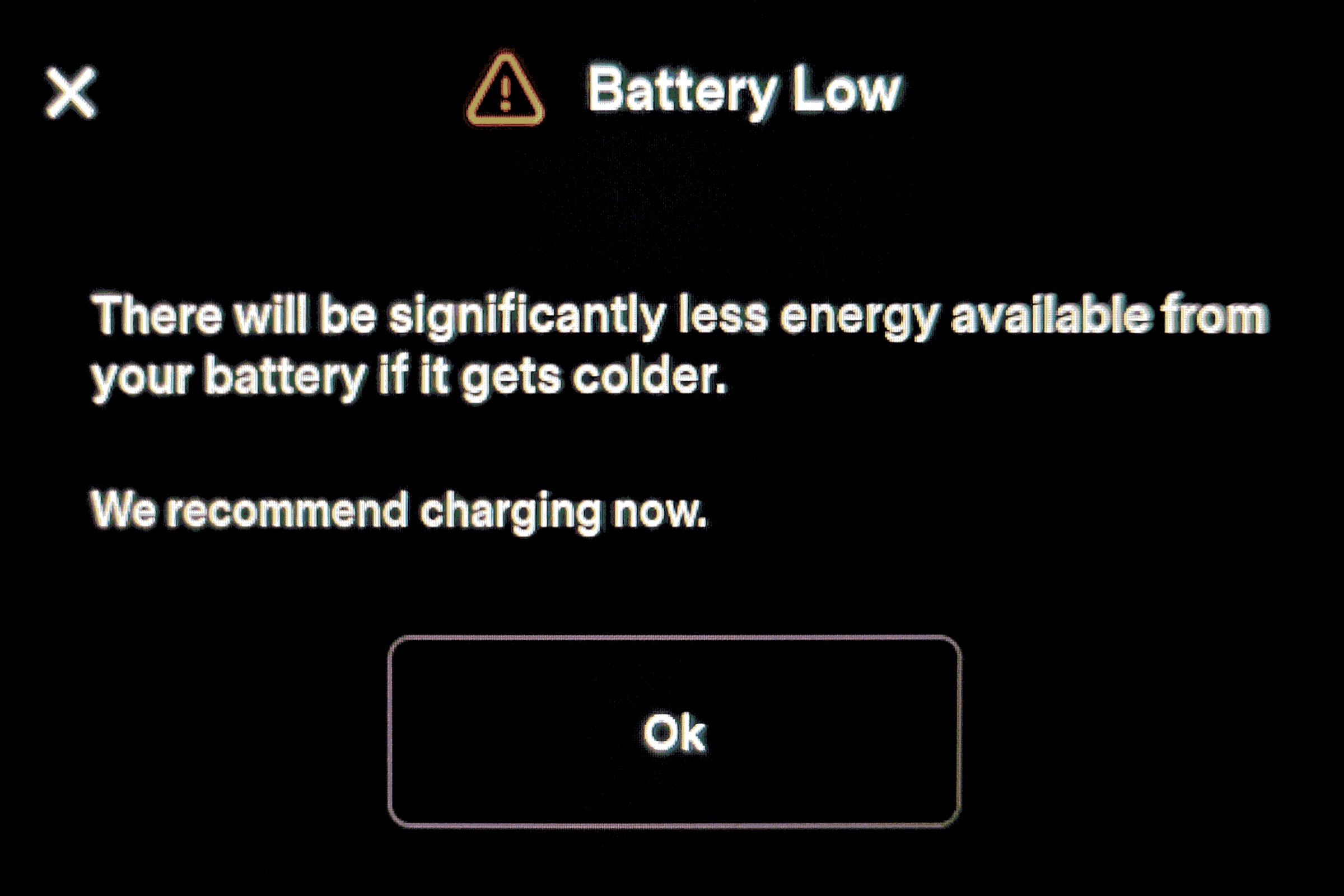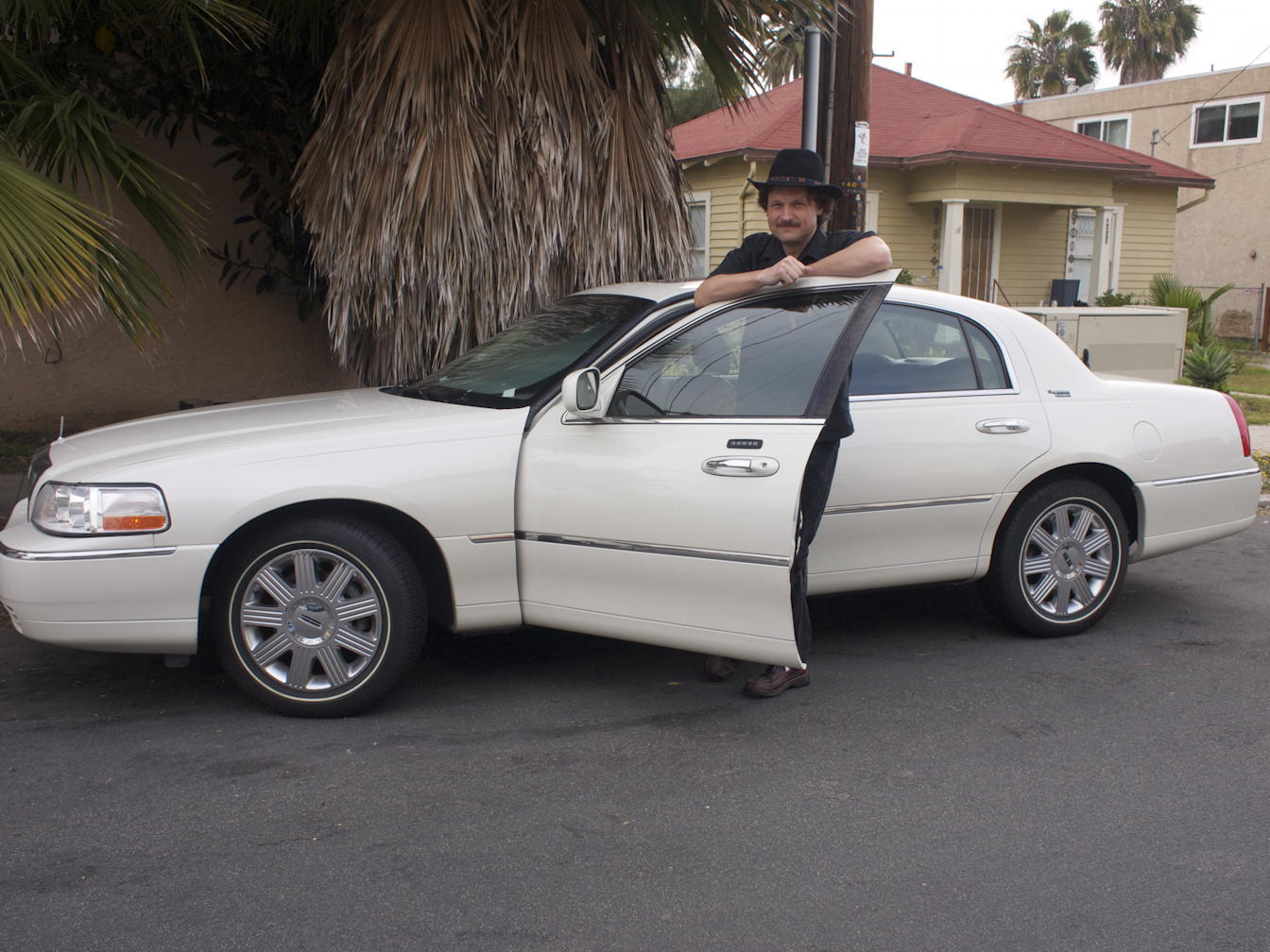What will a useful electric car look like?

This is a beautiful car. EVs are an amazing feat of technology. But they’re currently a lot like Samuel Johnson’s walking dog. It’s amazing it walks, but it’s not done well. That’s mostly because battery technology isn’t up to the needs of motorists.
Electric cars that work are potential game-changers for personal transportation. Never having to worry about hitting the gas station in the morning—because your vehicle’s “tank” automatically refills overnight. Using the same system to power accessories as is used to power the vehicle’s motion. Redundancy for the electrically powered accessories so that one dead battery doesn’t shut down the vehicle—as currently happens when a modern gas vehicle’s one battery dies.
All-electric vehicles even today have advantages. Acceleration is immediate: the direct link between power source and motive force makes changes in speed happen faster, making electric cars more maneuverable and thus potentially safer. This advantage, however, is held back by the mass requirements of both modern battery packs and current safety regulations. Heavier vehicles are less maneuverable.
One big problem is that what we call an electric vehicle is a misnomer. Our “electric” vehicles run off of chemical batteries. Our current battery technology is designed for far less strenuous tasks than the special needs of transporting large masses over long distances. I am increasingly of the opinion that when we finally get useful batteries for cars, their technology will be so different from current technology that we won’t even call them batteries.
Gasoline, after all, is a battery. It stores energy for later use, and in a very concentrated form.1 Gasoline is far more powerful and efficient for moving vehicles than our current electro-chemical batteries. Even in my giant old American car, a full tank of gas weighs a little over a hundred pounds, and this amount drops as the gas provides energy. Battery packs in cars weigh a thousand pounds or more, a thousand pounds that not only can’t go as far as my hundred pounds, but does not weigh less as it produces energy.
If I tricked out my trunk to hold a thousand pounds of gasoline in my car, I could go well over 3,000 miles without a refill. And it would probably still take less time to refill for another 3,000 miles than it does to refill an EV for another 300. That’s how efficient gasoline is compared to modern batteries.
The batteries themselves need to hold far more charge than they currently do per volume—and per weight. Part of the reason all-electric battery-powered vehicles have such poor range is that their batteries are ridiculously heavy. A winning battery technology must be able to exceed gasoline, weight-for-weight, in the amount of energy it produces.
Electric cars should have a higher capacity than gasoline cars, not a lower capacity. Their batteries should be able to store enough energy to power the motion of several hundred pounds of passengers and cargo through four hundred miles at a time or more, at speeds of at least 90 mph sustained for an entire day’s worth of travel several days at a time, with bursts up to at least 100 mph, and at the abrupt speed variations of normal traffic.

Hope you’re feeling hungry. (Photo of Tesla display from Curlyrnd on Wikimedia Commons, CC BY-SA 4.0)
Electric cars also must be safer than gasoline cars, not more dangerous. Both gasoline and modern batteries run the risk of a catastrophic discharge. But the batteries we use today seem to be able to catastrophically discharge on their own. Gasoline, as dangerous as it is, at least requires a spark or flame to cause a catastrophic discharge.
It may be that the quantity of energy vehicles need makes catastrophic discharge of their power source an inescapable risk. If so, this doesn’t bode well for batteries that hold higher power than today’s batteries. But if that risk can be overcome, either by removing it, by decreasing the chance of it happening, and/or reducing its intensity when it does happen, that would be a huge benefit for any new power storage technology.
New technologies win by being better than previous technologies, not worse.
The fire hazard caused by battery-powered cars is superficially similar to the fire hazard caused by gasoline cars. Both gasoline and batteries are highly concentrated sources of energy that can catastrophically discharge. But gasoline cars don’t need to be shipped filled with gasoline. At least one shipping company has banned electric vehicles from their ships due to this problem.
Your car’s gasoline store can also be isolated from the trigger that starts gasoline burning. The voltage that car batteries must expose in order to work are by necessity part of the energy store. Even if you run wires away from the battery, the wires are still hooked into the battery. Any water or other conductive material connecting those points can trigger the battery into catastrophic discharge, because batteries carry their own trigger.
Electric cars ought to be more durable than gasoline cars. All things degrade, but the device that stores the power must have a degradation period measured in decades and not years, or be ridiculously inexpensive. Batteries are currently an expensive replacement every few to several years. Gas tanks rarely need replacement. Fuel filters are inexpensive replacements, easily performed by weekend mechanics.
Current batteries literally degrade on the road while driving. They’re the weakest point not just in all-electric vehicles but in modern gasoline vehicles as well. Today’s vehicles cannot function without a working battery, even if already in motion.2
Recharge time is also critical, and it’s something we obviously have room to improve on over gasoline. Electric cars should be easier to refill than gasoline cars, not more difficult, and that shouldn’t be a high bar. That there’s a market for video advertising on gas pumps is an obvious indication that pumping gas takes too long.

Four hundred miles at a time, five minutes to refuel, regardless of high temperatures, low temperatures, or how hungry I am.
But that modern battery technology is even worse is betrayed by how far all-electric proponents go to pretend that slowness is an advantage. I watched one proponent of all-electric vehicles talk about using their car to get to a convention across the country. They timed food stops with recharge stops. That meant a lot of food stops. I would personally gain a lot of weight traveling if I owned a battery-powered car and followed that strategy.
Gasoline refills are fast and easy compared to recharging batteries. It’s a huge problem, and it is so painfully obvious some battery-powered vehicle proponents have suggested the insane idea of setting up “charging” stations where you would trade in your expensive new batteries for used ones whenever you needed a charge.
I find it difficult to believe that anyone proposing this expects to own a battery-powered vehicle themselves. The first time you took your sparkling new vehicle to one of these stations you’d be trading in a fresh set of batteries with great range for aged batteries with poor range. Very quickly good batteries would be taken out of the system and only be available on the grey market.
There is, in other words, a lot of room for improvement, and a lot of potential for a useful all-electric vehicle. Electric vehicles should use less dangerous and more readily available raw materials. Currently, batteries require rare raw materials that are expensive and difficult to mine. This makes it very difficult to scale up battery-powered vehicle production.
For all-electric vehicles to be safer, more durable, and easier to build than gasoline vehicles will take a radically different battery design than we currently use or that government bureaucrats can envision. We need a complete paradigm shift in what constitutes a battery.
This is not something that can be solved with a government-funded “moonshot” approach. Moonshots only work when we already know the science and need only to work out the engineering. But we have no idea what the science is that will underly the kind of batteries we need to store power suitable for free and unfettered travel. I am increasingly certain that government funding of battery research is holding back the necessary breakthroughs because the people who disburse grants only fund the familiar and failed, rather than the unfamiliar and only probably a failure.
- October 11, 2023: Lazlo Hollyfeld on the electric car
-
In my last post, I wrote about the problems with current battery technology. Today’s batteries make owning a battery-powered vehicle a huge hassle and limit travel options to nearby destinations—or enforce artificially long travel times. In both cases, they require that the destination be one where electricity is available in sufficient quantities for charging a battery-powered vehicle. Trips to out-of-the-way places become very difficult when you can’t just store extra bottles of your power source in the trunk. Battery-powered vehicles already maximize every spare location as battery space.
Any unforeseen problem—temperature, traffic jam, etc.—runs the risk of draining the battery, leaving the driver stranded, even during daily trips. And there is no obvious way forward: the future of battery-powered vehicles requires a completely new battery technology, and we not only don’t have that technology we don’t even know where it will come from.
I’ve sometimes said that electric cars are basically daily beaters at the cost of a sports car, but that oversells them. As a daily beater they’ve got issues as well; I’ve known several people who have bought electric cars thinking they’d use them to get back and forth to work, do their shopping, all their local driving. All but one of those vehicles have since been replaced with gasoline vehicles. That one is owned by a friend who has a habit of buying cars that need constant attention.
I think, at best, today’s battery-powered vehicles are little more than Sunday drive vehicles. You don’t have to worry about filling up with gas or checking the oil; you don’t have to worry about rush hour, or temperature extremes. It’s a wonderful day, so get in, drive around the countryside for an hour or two, and come home.
When you do have to worry about losing power during a traffic jam, or having less of a charge than you thought you did because it’s too hot or too cold, or the parking lot’s charger is already occupied and you’re late for work, they make a lot less sense. It is absolutely insane that some states are mandating battery-powered vehicles today. They do not make traveling easier when that travel has the purpose of getting to a specific place at a specific time.
But that brings up a not-so-obvious question. Are electric cars really meant to make traveling easier? Let’s, as Lazlo Hollyfeld might say, look at the features of the modern all-electric power source, that is, the modern battery:
Technically, gasoline is also a solar battery: the energy that gasoline stores was derived from the sun. Gasoline is literally a compact, efficient, and durable form of solar energy, possibly the best form of it so far discovered. I wouldn’t be surprised if the eventual winning “battery” technology ends up looking a lot like a synthetic gasoline.
↑For gasoline vehicles, this is more of a design flaw than a technical limitation. Obviously the alternator provides enough electricity to run the electrical portions of the system. Otherwise even working batteries would run down while driving. But when a battery fails in a manner that causes it to constantly keep pulling power from the alternator, the alternator will burn out. Fixing this would require some means of detecting that the battery is no longer storing power and then bypassing it, supplying power directly to, and only to, the portions of the car that use electricity.
And of course warning the driver, since the next time they turn their car off (or drop to low RPMs) it isn’t going to start.
↑
battery-powered cars
- Can a weak battery destroy an alternator? at Stack Overflow
- “Absolutely yes. I sell alternators all day every day - and a poor battery is often the root cause of alternator failure.”
- Norwegian Shipping Company Bans Electrified Vehicles Over Fire Fears: Sebastien Bell
- “The company says that its ships are not equipped to fight a lithium-ion battery fire at sea.” (Hat tip to Buck Throckmorton at Ace of Spades HQ)
- Report Says Ship On Fire Carrying Porsches, Bentleys, VWs Included Many EVs: Sebastian Blanco
- “The salvage crew working on the burning ship now says electric-vehicle batteries are part of the reason it is still aflame after several days, the Wall Street Journal is reporting.” (Hat tip to Buck Throckmorton at Ace of Spades HQ)
- Unfit for use? More EV Woes: Eric Worrall at Watts Up With That?
- “I’d be lying if I said I didn’t curse these silly electric cars under my breath once or twice.”
government funding capture
- Does government funding hold science back?
- Abundant government funding for research probably has the effect of dividing research into crazy and conventional, with little in between for innovative.
- Why government-funded cancer research is dangerously unlike the Manhattan Project
- A “Manhattan Project” for cancer is likely to delay cancer cures, and make what cancer cures we find more expensive—like the Epipen. And kill people, like the original Manhattan Project.
More batteries
- Bluetooth battery early warning system
- Use GeekTool, or crontab or launchd and notifications, to know when your bluetooth batteries need recharging.
More battery-powered cars
- Lazlo Hollyfeld on the electric car
- The problems with electric cars are insurmountable without completely new battery technology that no one who wants to mandate battery-powered cars is looking for. Almost as if the real purpose of electric cars is not transportation, but anti-transportation.
- Socialized gasoline: The bureaucratic miracle of Vehicle-to-Grid
- Vehicle to grid, when managed by governments, will mean taking your car’s fuel and giving it to somebody else who needs it more.
- Zeno’s motorcar
- Automobiles are awesome machines. But sometimes it seems as though they’re stuck twenty years in the past.

